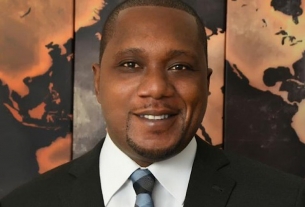Kids pick up on the unspoken messages of those around them.
Unfortunately, most of us as parents do not set the best example when it comes
to personal finance. For better or worse, the best way to raise financially
savvy adults is to start young.
Financial Literacy Education: Teaching Kids about Money
By A. Keshelle Kerr
Have you ever asked yourself…
"Why didn't anyone teach me how to save and invest when I was young?"
Maybe you’re raising a miser whose window washing and yard cleaning money is
accumulating under the mattress. Maybe you’ve got a greedy Gus who thinks money
grows on trees. Kids pick up on the unspoken messages of those around them.
Unfortunately, most of us as parents do not set the best example when it comes
to personal finance. For better or worse, the best way to raise financially
savvy adults is to start young.
Less than 10% of all high school graduates learn about money in school and
even less learn about it at home. This is because parents often don't know the
information themselves or simply don't have the tools to teach their kids about
money.
Our schools offer classes that teach practical skills such as sewing,
technical, nutrition classes and more. What’s missing? Financial Literacy! This
is the reason why we as Bahamians find ourselves overwhelmed by personal debt.
We just don’t know any better. Most Bahamians have never received the training
that could help manage their finances.
Skills of managing money well are not skills that individuals are born with.
It is a learned behavior. Therefore, if we fail to act now to improve financial
literacy in this country, our children will be at risk for crippling personal
debt, costly decisions at work and at home, and lack competitive skills in a
fast-paced global economy.
We read to our children from the time they are in diapers about literacy. It
is time we start talking to our kids early and often about responsible money
management. My daughter D’shelle, at eight years old has already been made aware
of what an asset is, the importance of saving and investing, the difference
between good and bad debt and the cons of using credit cards. How many of us can
say that about many eight year olds?
Talking about money is not good enough however. Basic financial education
with practical measurable standards should be a baseline for a high school
diploma in the Bahamas. I believe that this all important skill would greatly
reduce the number of social issues we are facing in this country.
Our kids come in contact with more money these days that many parents only
dreamt of when they were their kids’ age. Five dollars from Aunt Jenny and
twenty dollars from Uncle Robert all add up to a pretty penny once saved over
time. There is no reason why our children cannot grow up to achieve millionaire
status by age 30 or 40 instead of hanging around on a job until retirement age
to scrape a pension.
You can begin teaching financial responsibility to kids as young as three
years of age once there is interest. The earlier you start sharing money
conversations, the more natural in becomes.
Financial literacy is no longer a luxury for the ambitious few. In today’s
complicated financial world, it is a bare necessity for all of us. Let us not
sleep on taking this step. Parents, Teachers and citizens who are concerned
about the future of this country should begin to insist that a culture of
financial literacy be instilled in our youth. If not, we would be in a sorry
state.
Keshelle Kerr is the owner of Creative Wealth Bahamas, a subsidiary
company of Creative Wealth International, a non-profit organization located in
Santa Barbara California. The company exists to give kids and adults the tools
to choose and create financial freedom. Their goal is to ensure that all kids
throughout the Bahamas from age 10 and up receive financial literacy training in
their life. For more information visit
www.creativewealthintl.org.
You can contact her at 361-7911 or 454-0808.
